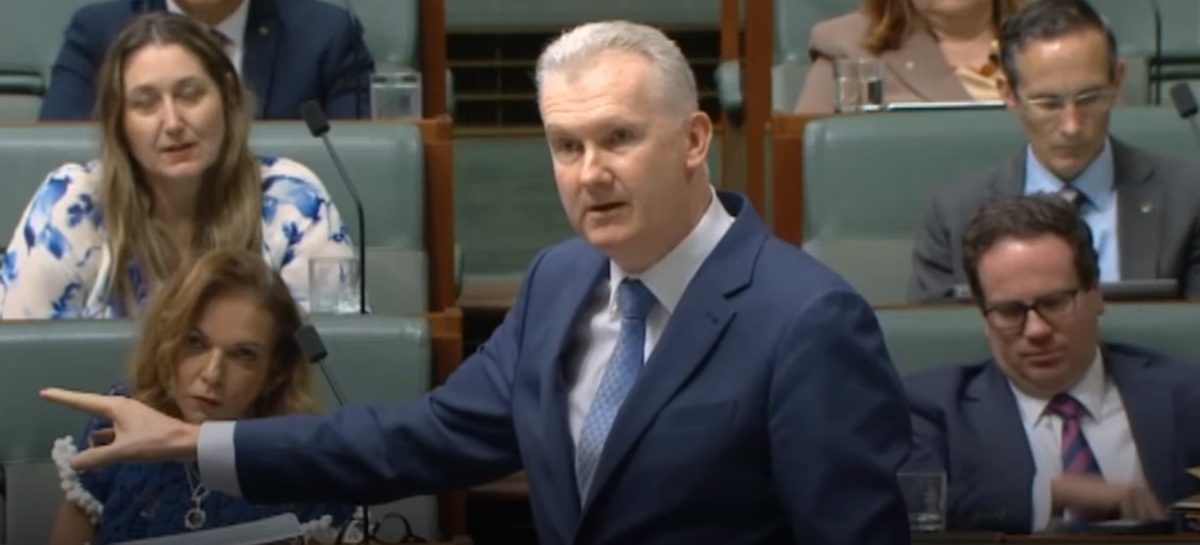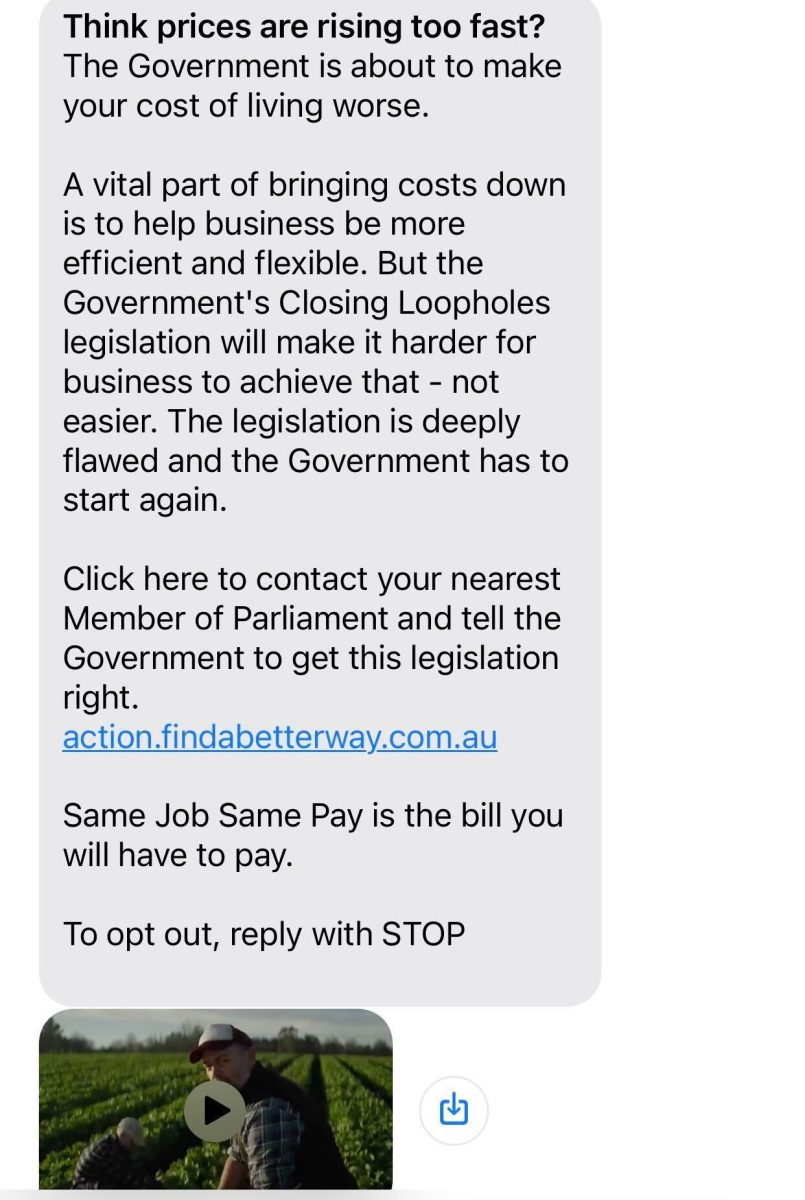
“This Government was elected to get wages moving again, and that’s what we’re doing – but there’s more to be done,” said Minister for Workplace Relations Tony Burke. Photo: APH.
The Federal Government has passed new Fair Work legislation, with almost 100 amendments added to the Closing Loopholes Bill in the week before its adoption. Now the changes will go before the Senate, but a private sector coalition led by the Minerals Council of Australia (MCA) is pulling out all the stops through its $24 million advertising campaign to prevent them from becoming law.
Among the changes was the inclusion of minimum pay for gig workers; the criminalisation of wage theft, increasing civil penalties sixfold; casual conversion rights; and the Greens’ amendment to the Government’s bargaining laws.
The latter ”Same Job, Same Pay” provision originally gave unions or employers the ability to seek arbitration after nine months of bargaining, but now the process requires workers’ conditions to be more favourable than their existing ones.
This provision underpinned the bill’s introduction by stopping labour-hire firms from undercutting bargained wages and conditions in employee agreements. The Government estimates 67,000 labour-hire workers will be impacted, especially in mining and aviation, the industries with the most to lose from the bill, according to a review by investment group Jarden Australia.
Jarden said the impact on the oil, gas, industrial, retail and healthcare sectors would be marginally negative, but the companies to suffer most from the provision will likely be BHP, South 32, Rio Tinto and Qantas. BHP estimated the bill’s cost to mining would be 26 times higher than the Government’s at $1.3 billion.
Minister for Workplace Relations Tony Burke considered the figure incorrect, and the labour-hire system used by miners a tax loophole undermining the pay casual employees receive compared with full-time employees.
The Coalition voted against the bill, which now sits before the Senate, where Labor does not hold a majority.
“They spent a decade in government deliberately keeping wages low – confessing it was a deliberate design feature of their economic architecture,” Mr Burke said. ”They might be in Opposition now, but they still can’t kick the habit.”
Mr Burke noted that September recorded the highest-ever quarterly growth on the Wage Price Index (4%).

Following the Closing Loopholes Bill’s passing in the Lower House, a text was sent out by the MCA-led coalition in opposition to the new legislation. Photo: Region Media.
ACTU secretary Sally McManus said on the day before the bill’s passing: “Big Business wants Peter Dutton and the crossbench to block the legislation because they are happy to keep wages low and profits sky-high.”
“Anything that gets in the way of money-making is labelled ‘red tape’ or ‘complicated’. If companies like Qantas and BHP can get their head around introducing complex labour-hire agreements to drive down pay, they are certainly capable of understanding legislation that will make work safer and get wages moving in a cost-of-living crisis.”
During a Senate inquiry into the bill, it was revealed the MCA’s advertising campaign was primarily funded by Rio Tinto, BHP and Glencore.
On the campaign’s website, it states the coalition is supported by the Australian Chamber of Commerce and Industry, Australian Energy Producers, Business Council of Australia, Council of Small Business Organisations Australia, Master Builders Australia, National Farmers’ Federation, and the Recruitment, Consulting & Staffing Association.
The Greens also introduced the criminalisation of superannuation underpayments, which the ACTU welcomed as a ”sensible decision” for bringing it in line with wage theft. Recent Super Members’ Council modelling states that every year about 2.8 million people are unpaid a total of $4.7b in superannuation.
Joint ventures were also included in the bill, along with the exemption of service contractors from labour-hire laws, and fixed-term contract teachers and lecturers from its definition of a casual. However, firms were given the ability to attract casuals and limit penalty rates under gig worker legislation.
Crossbench senators Jacqui Lambie and David Pocock tried to push four amendments through before Christmas for those struggling with the cost-of-living crisis. They were passed in the Senate but not the Lower House. In response, the senators moved a motion requesting a ”conference” between the two houses of parliament. Despite passing the Senate by two votes, it was struck down in the Lower House.





